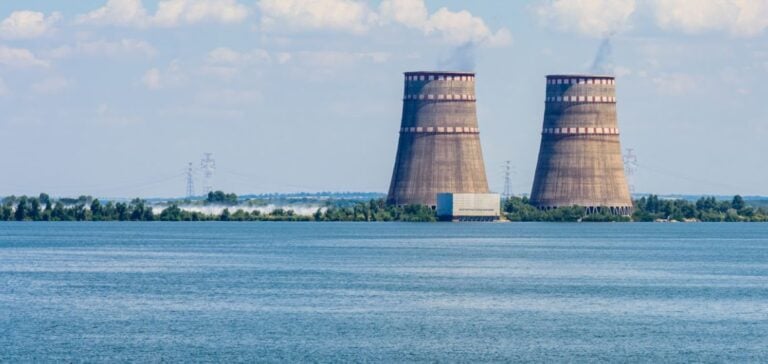Ukraine, having lost a significant portion of its energy production capacity due to Russian attacks, is turning to the United States to develop a roadmap for a more resilient future energy grid.
U.S. Energy Secretary Jennifer Granholm says the plan will include the use of safe nuclear technologies and renewable energies to begin an energy transition.
An energy network under pressure
Since the start of the conflict with Russia, Ukraine has been facing a massive loss of power generation capacity, resulting in constant shortages and frequent blackouts.
This critical situation requires rapid intervention to stabilize the existing network and prepare for reconstruction.
Granholm emphasizes the importance of strengthening current infrastructures while planning for the future in a sustainable manner.
Nuclear and renewable technologies at the heart of the future
Ukraine’s energy roadmap will include micro-reactors and Small Modular Reactors (SMR), as well as solar and wind power generation solutions, coupled with battery storage systems.
Granholm stresses the need to design new nuclear capacity in a secure way to ensure grid resilience.
Currently, Ukraine operates nine nuclear reactors in three power plants located on its controlled territory, supplying over 55% of its electricity needs.
To compensate for the loss of the six Zaporizhzhia reactors, seized by Russia in 2022, Ukraine plans to expand its nuclear sector.
Current projects and strategic partnerships
In January, the Ukrainian Ministry of Energy announced the start of construction work on four new nuclear reactors at the Khmelnytskyi power plant, scheduled for summer or autumn 2024.
At the same time, Energoatom, Ukraine’s state-owned nuclear power company, has signed an agreement with Westinghouse for the construction of additional reactors.
Margaret Cosentino, Westinghouse’s Vice President of Corporate Affairs, confirms the agreement to consider the deployment of nine AP1000s in the country.
Perspectives and challenges
Preparations for these projects are progressing, although construction work has not yet begun.
Cosentino points out that Westinghouse is working closely with Ukraine to review the Kamilnitsky 5 project and prepare projects ready for start-up as soon as the war ends.
The partnership between the USA and Ukraine in this field illustrates international cooperation aimed at strengthening energy resilience in the face of geopolitical challenges.
This collaboration could transform Ukraine’s energy landscape, making it more sustainable and resilient.
It is part of a long-term vision to secure and diversify energy sources, essential for the country’s stability and future development.






















